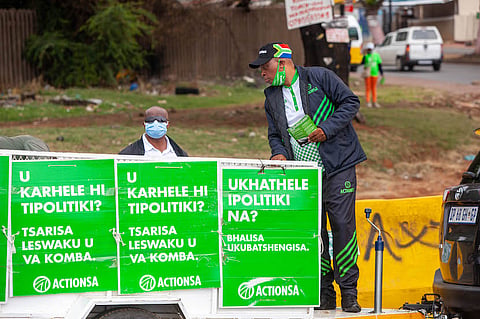Financial Times perspective: Herman Mashaba has arrived on the SA political stage. In a big way.
There's an update to story below from our partners, the Financial Times of London, which was published yesterday. Last night, Dr Mpho Phalatse, the new DA mayor of Johannesburg, confirmed her 10-seat executive team – three of whom are from Herman Mashaba's ActionSA. The DA itself has four seats and there's one each for other allies the IFP, FF+ and ACDP. That development confirms the powerful message to the world from Europe's most influential title – businessman, free marketeer and political maverick (and BNIC#1 opening act) Herman Mashaba has arrived on the SA political stage. In a big way. It's impossible to over-estimate how this kind of coverage impacts the psyche of SA's would-be friends in the democratic world. Until now, the West was resigned to the country being run by a corrupt former liberation movement that, in a crunch, could rely on the support of hard-line socialists. Suddenly a credible alternative to that depressing scenario has emerged. Hope springs. – Alec Hogg
Use Spotify? Access BizNews podcasts here.
___STEADY_PAYWALL___

